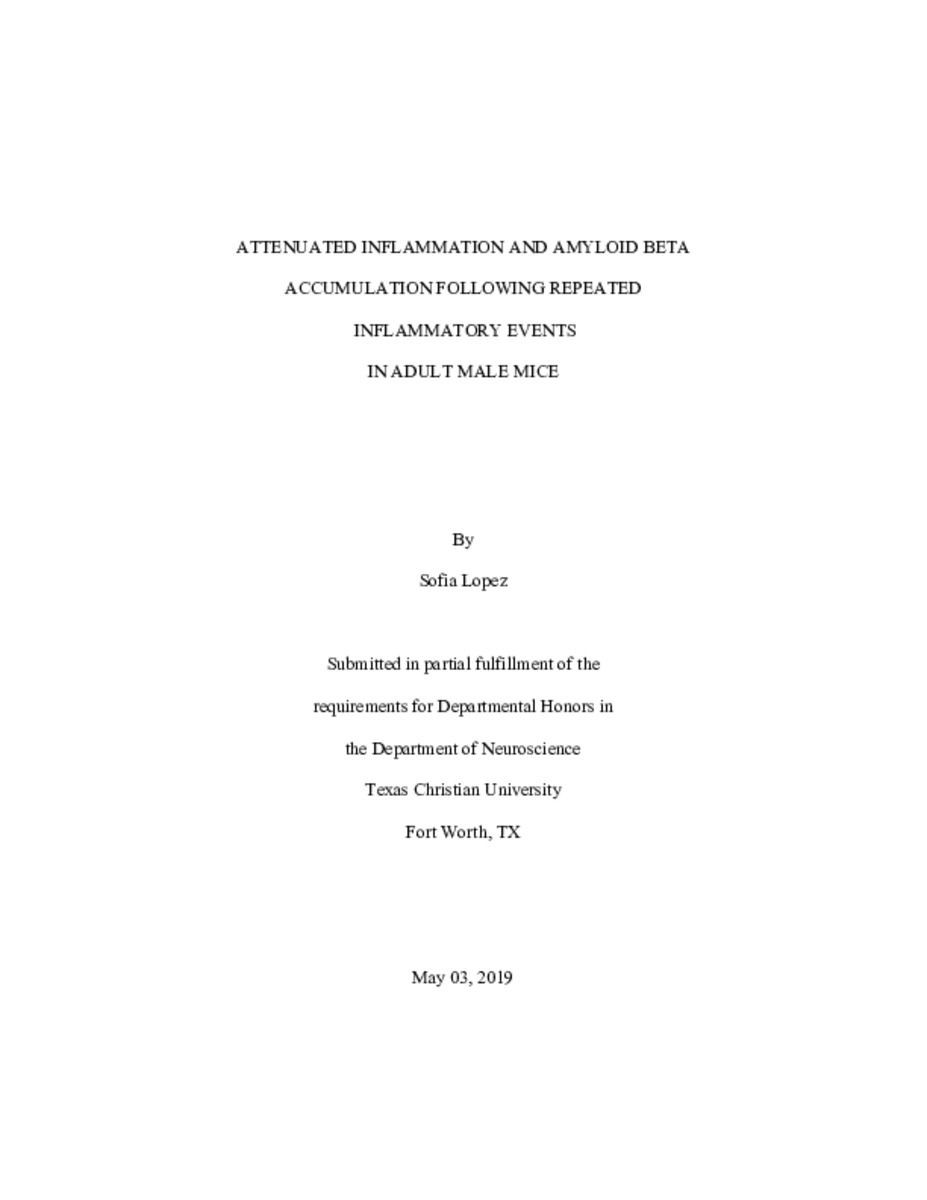Attenuated Inflammation And Amyloid Beta Accumulation Following Repeated Inflammatory Events In Adult Male MiceShow full item record
| Title | Attenuated Inflammation And Amyloid Beta Accumulation Following Repeated Inflammatory Events In Adult Male Mice |
|---|---|
| Author | Lopez, Sofia |
| Date | 2019 |
| Abstract | Alzheimer's Disease (AD) is a form of dementia that currently affects 5.8 million Americans, most of whom are over the age of 65 years old. The prevalence of AD is estimated to increase with the aging American population and reach 13.8 million by 2050. The incidence of AD is higher in people with chronic inflammatory diseases, such as lupus, rheumatoid arthritis, and diabetes. It has been hypothesized that this occurs due to the role of inflammation in the accumulation of amyloid beta (A-beta) peptide in the brain. A-beta accumulation is one of the two hallmark pathologies behind AD, along with tau neurofibrillary tangles. The accumulation of A-beta manifests as the cognitive and learning deficits characteristic of AD symptomology. In order to investigate this link, the laboratory uses wildtype mice. Mice produce murine A-beta peptide and its accumulation leads to the cognitive deficits associated with AD. Previously, the laboratory as used a bacterial mimetic to induce an inflammatory response in the mouse that has been shown to lead to increased A-beta accumulation and its associated cognitive deficits. The goal of this project was to evaluate the effect of multiple inflammatory insults in the inflammatory response of mice and the subsequent accumulation of A-beta in the brain. An additive effect on the inflammatory response and A-beta accumulation was expected. In order to test the hypothesis, mice were exposed to a bacterial mimetic with daily intraperitoneal injections for 7 days. The subjects were then allowed to recover from the initial inflammatory insult and subsequently exposed to the same bacterial mimetic. The results showed no additive effect on inflammation or A-beta accumulation. Instead, the results suggest a long-lasting protective mechanism of primary endotoxin exposure. One possible explanation for the observed effect is antibody mediated protection against the particular endotoxin the mice were exposed to. This hypothesis is currently being explored. |
| Link | https://repository.tcu.edu/handle/116099117/27032 |
| Department | Psychology |
| Advisor | Chumley, Michael |
| Additional Date(s) | 2019-05-19 |
| NOTE: | Full text permanently unavailable by request of author. Contact author for access. |
Files in this item
This item appears in the following Collection(s)
- Undergraduate Honors Papers [1463]
© TCU Library 2015 | Contact Special Collections |
HTML Sitemap



